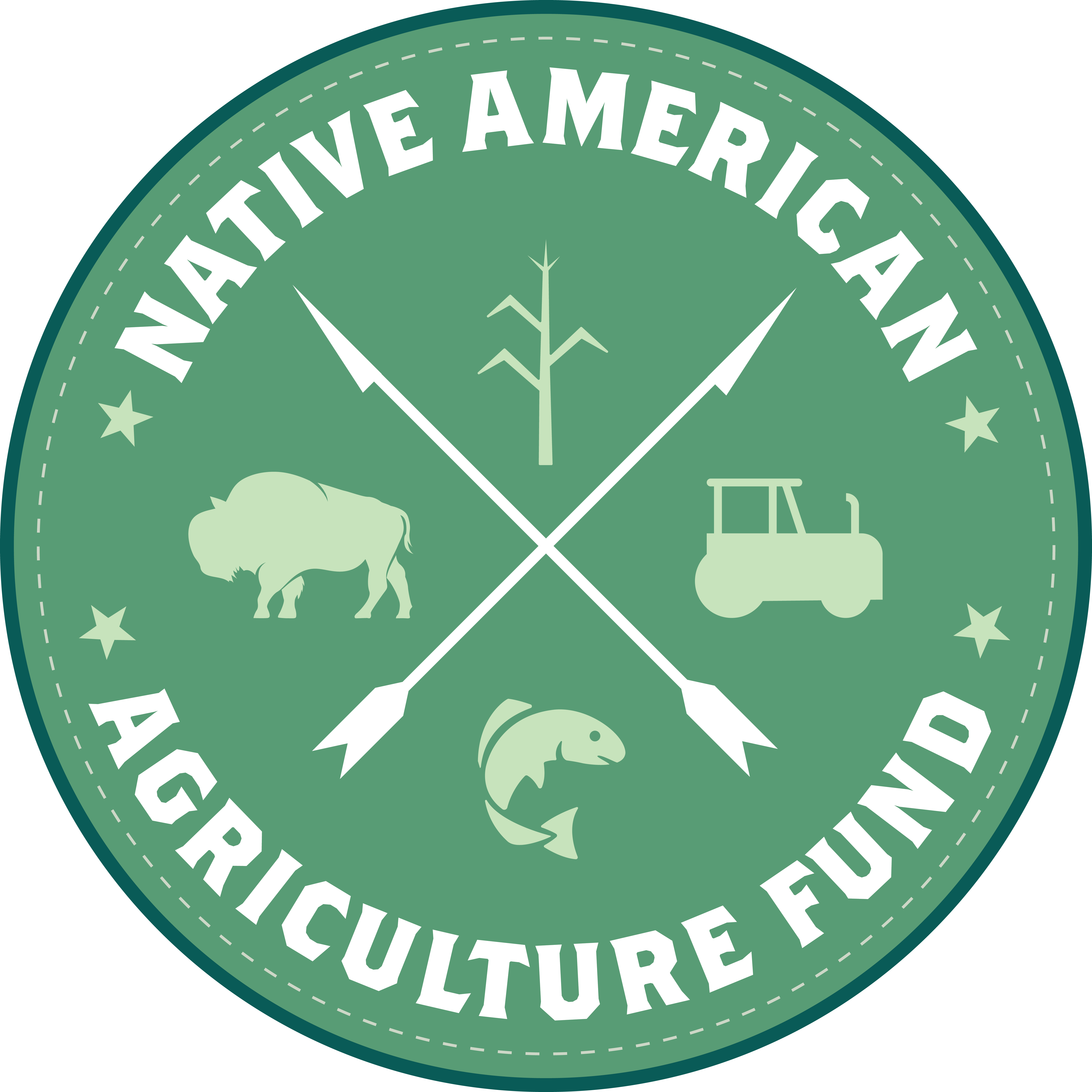NAAF and BIE expand agricultural education opportunities for Native students
NAAF and BIE expand agricultural education opportunities for Native students
Partnership with Native American Agriculture Fund will increase career pathways for BIE students.
The Bureau of Indian Education and the Native American Agriculture Fund announced a new partnership that will allow more BIE students to benefit from comprehensive, culturally relevant agricultural training and education. The agreement, which was signed during a ceremony at a Bureau of Indian Education school last week, and the initial implementation for this education resource will be piloted in Wingate, New Mexico.
“This partnership furthers BIE’s commitment to provide a high-quality, culturally relevant education while empowering Native communities and paving the way for a brighter future in Indigenous agriculture,” said Assistant Secretary for Indian Affairs Bryan Newland. “Increasing agricultural education through business and lending experiences, vocational education programs, youth initiatives and outdoor agricultural exposure helps to create increased interest and new opportunities for Native students to develop career pathways in agriculture and related fields.”
The educational resources developed for use as part of this partnership delve into Native agricultural history and modern practices, focusing on topics like origins, leadership, and plant science within Native communities. By integrating project-based learning, students engage deeply with the principles and practices of traditional agriculture, fostering an understanding of Indigenous agricultural systems across Native lands in the United States.
“Agricultural education is a fundamental focus for NAAF, offering a pathway for students, producers, and Native communities to engage in tribal agriculture, sustain food systems, bolster credit and lending opportunities, and support tribal economies,” said NAAF CEO Toni Stanger-McLaughlin. “It merges tradition with new technologies, entrepreneurship, health, and trade, positioning Native youth as future agriculture leaders in areas such as business, STEM, and health sciences. This collaborative lifelong agriculture education effort addresses a crucial gap in agricultural education. It aims to empower Native students with education to preserve generational knowledge and sustain holistic agricultural ecosystems.”
The Tribal Agriculture Fellowship program, a sister organization of NAAF, will lead efforts to collaborate with BIE schools in developing and tailoring resources to meet the unique needs of each school utilizing the educational resource.
“From our Food Hubs program to community growing efforts and new degree programs, BIE has increased agricultural education opportunities from early childhood to post-secondary,” said Bureau of Indian Education Director Tony L. Dearman. “This partnership will build upon those efforts and support Indigenous agriculture, furthering our commitment to including Indigenous knowledge in the BIE curriculum and providing career pathways in agriculture.”
The partnership will also support the Indigenous Foods Hubs project. Indigenous Food Hubs have been established at four BIE schools nationwide to enhance culturally based healthy nutrition education and boost training for healthy and culturally appropriate food preparation.
BIE food hubs use Indigenous knowledge to develop holistic approaches to support Native Food Sovereignty movements while incorporating culture, social determinants of health, food, nutrition, land management, and regenerative agriculture.
“We are thrilled to embark on this journey with BIE schools,” said Nicole De Von Jackson, director of the Tribal Agriculture Fellowship program. “This partnership represents an incredible opportunity to create customized resources that truly reflect each community’s unique needs and strengths. We are excited to see how this initiative will inspire and empower Native students to become the next generation of leaders in agriculture.”
NAAF is derived from the Keepseagle national class action settlement, which focused on barriers in lending practices impacting Native farmers and ranchers. One important area impacting Native producers’ success is access to capital. NAAF’s mission is to invest in solutions that advance agriculture, including education, by addressing and reducing the challenges that Native producers face.
The Bureau of Indian Education implements federal Indian education programs and funds 183 elementary and secondary day and boarding schools serving approximately 40,000 students. BIE oversees the operation of two postsecondary schools, Southwestern Indian Polytechnic Institute and Haskell Indian Nations University. BIE administers grants for 29 Tribally controlled colleges and universities and two tribal technical colleges. For more information, visit the BIE website at https://www.bie.edu/.
###
About the Native American Agriculture Fund:
The Native American Agriculture Fund (NAAF) provides grants to eligible organizations for business assistance, agricultural education, technical support, and advocacy services to support Native farmers and ranchers. The charitable trust was created by the settlement of the landmark Keepseagle v. Vilsack class-action lawsuit. NAAF is the largest philanthropic organization devoted solely to serving the Native American farming and ranching community.
